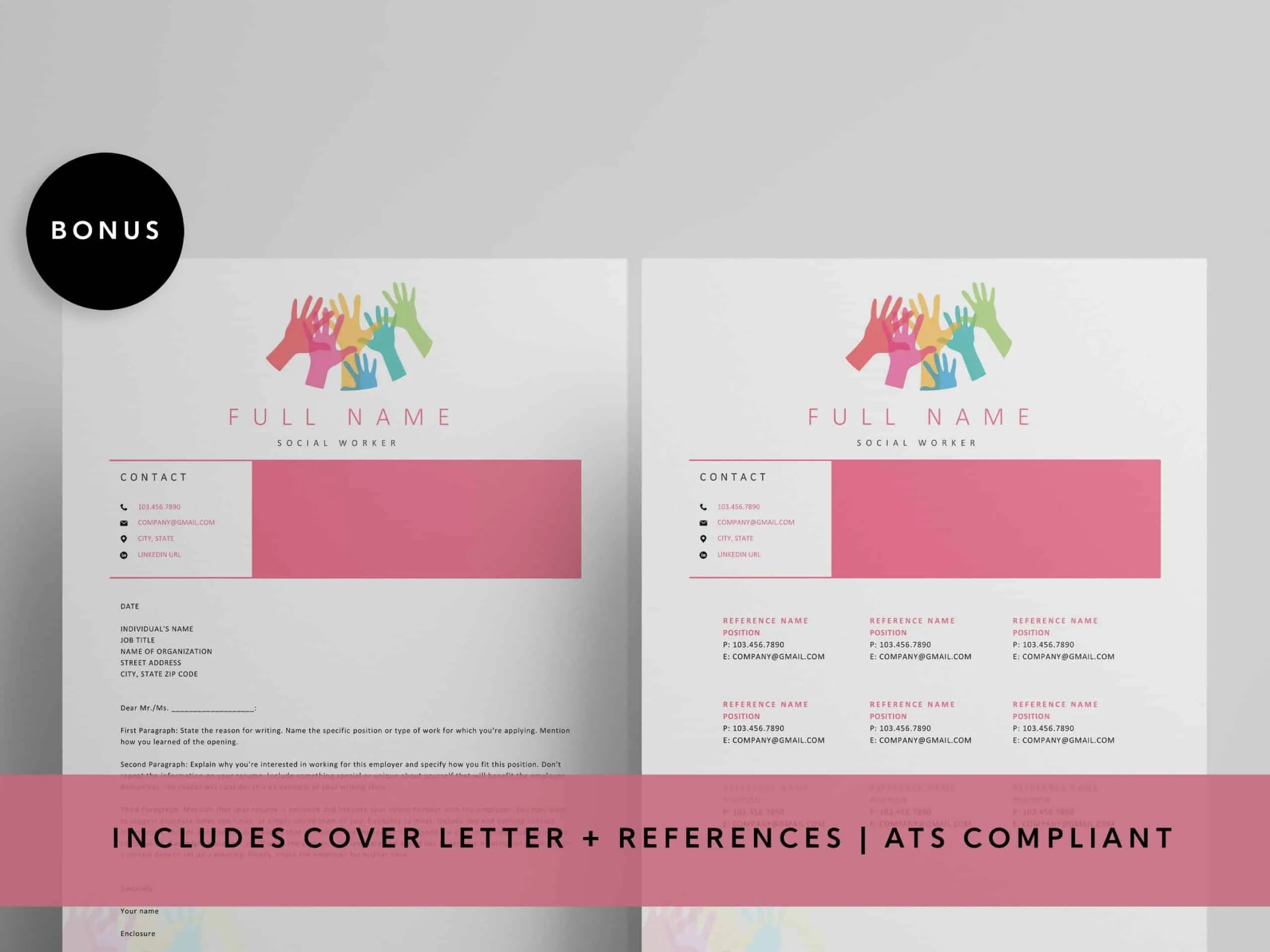What is a Caseworker Cover Letter?
A caseworker cover letter is a crucial document that accompanies your resume when you apply for a caseworker position. It serves as your initial introduction to the hiring manager, providing an opportunity to highlight your relevant skills, experience, and passion for the role. Think of it as a personalized sales pitch, allowing you to showcase why you are the ideal candidate. The cover letter goes beyond the basic information in your resume. It allows you to expand on your qualifications, share specific examples of your accomplishments, and demonstrate your commitment to the field of casework. A well-crafted cover letter can significantly increase your chances of landing an interview and ultimately securing the job. This is your chance to make a memorable first impression and show why you stand out from other applicants.
Key Components of a Caseworker Cover Letter
Creating a compelling caseworker cover letter requires attention to several key components. Each part of your cover letter plays a specific role in conveying your qualifications and enthusiasm. Understanding and effectively utilizing these components can significantly enhance your application and increase your chances of success. Ensure that you thoughtfully address each section, making sure your cover letter reflects your communication skills, attention to detail, and professionalism, all essential traits in the field of casework. The right components and structure will help make a lasting and positive impression on the hiring manager. Consider that each element contributes to the overall message you want to convey.
Contact Information
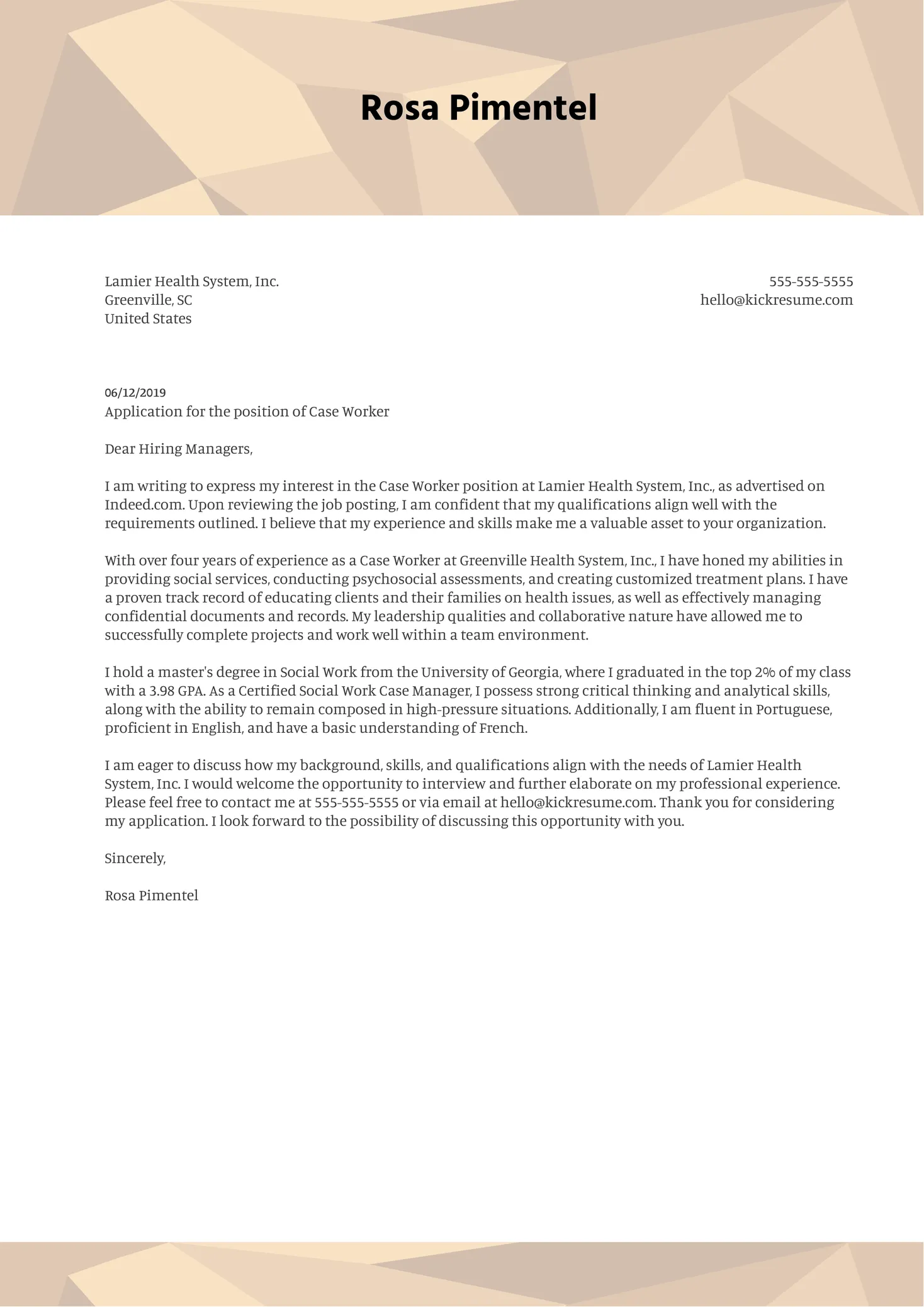
Start your cover letter with your contact information. Include your full name, phone number, email address, and optionally, your LinkedIn profile URL. Make sure all information is current and accurate. It’s also important to include the date and the employer’s contact information, such as the hiring manager’s name (if known), their title, the organization’s name, and the address. This section provides a professional appearance and makes it easy for the employer to contact you. Always double-check for any spelling or formatting errors to maintain professionalism and ensure the employer can reach you easily. Accurate and complete contact details make it convenient for the employer to respond.
Personalized Salutation
Always address your cover letter to a specific person whenever possible. Take the time to research the hiring manager’s name and title. If you are unable to find a specific name, use a professional salutation like “Dear Hiring Manager.” Avoid generic greetings such as “To Whom It May Concern,” which show a lack of effort and can be off-putting. Addressing the letter to a specific individual demonstrates that you have taken the initiative to research the company and shows your genuine interest in the role. It adds a personal touch to your letter, making it more engaging for the reader and showing you care.
Opening Paragraph Hook
The opening paragraph is your chance to immediately capture the reader’s attention. Clearly state the position you are applying for and how you learned about it. Briefly highlight your key qualifications and express your enthusiasm for both the role and the organization. A strong hook can be a compelling sentence or a specific achievement, to express your interest. This opening should be concise and impactful, setting a positive tone for the rest of your cover letter. Start with a captivating sentence and make the reader want to find out more. This will motivate the hiring manager to read further.
Highlighting Relevant Skills
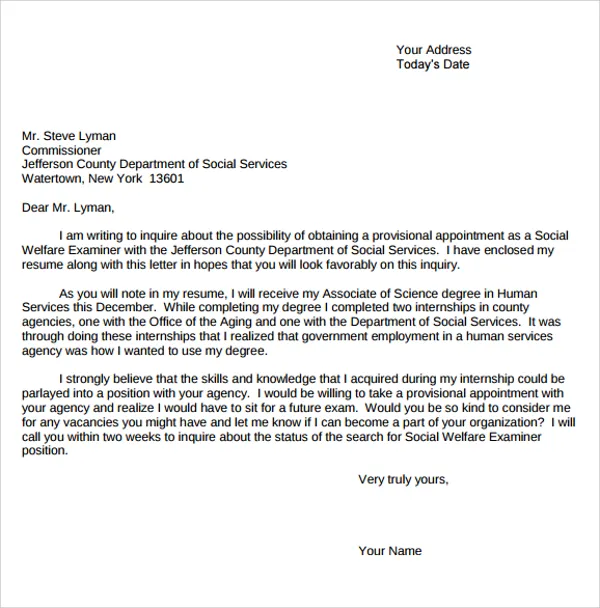
In the body of your cover letter, emphasize the skills and qualifications that make you a strong candidate for the caseworker position. Review the job description closely and identify the key skills and requirements the employer is looking for. Provide specific examples from your experience that demonstrate how you have successfully used these skills. Important skills for caseworkers include communication, empathy, problem-solving abilities, critical thinking, and case management skills. Tailor this section to precisely match the specific requirements of the job and show how you meet each requirement with concrete evidence from your past experiences. This shows that you understand the job’s demands.
Emphasizing Experience
Provide a detailed description of your relevant work experience. Focus on the roles and responsibilities that align with the caseworker position. Use the STAR method (Situation, Task, Action, Result) to describe your accomplishments. Explain the specific situation you faced, the task you were assigned, the actions you took to address the task, and the positive results that you achieved. Quantify your accomplishments whenever possible, such as the number of cases you successfully managed, or the percentage improvement in client outcomes. This section should create a clear picture of your professional journey and demonstrate how your prior experiences make you a valuable asset to the company. Highlighting your experience makes you a great asset.
Showcasing Accomplishments
Beyond simply listing job duties, showcase your accomplishments. Provide concrete examples of how you have made a positive impact in previous roles. This might include improving client outcomes, streamlining processes, or exceeding performance targets. Use quantifiable data to support your claims, such as “Increased client satisfaction scores by 20% through the implementation of a new support program.” Showcasing your accomplishments proves your ability to deliver results, making you a strong contender for the position. Highlighting these examples will show your potential to the employer. Showcase your accomplishments to show that you provide real-world value.
Demonstrating Passion for Casework
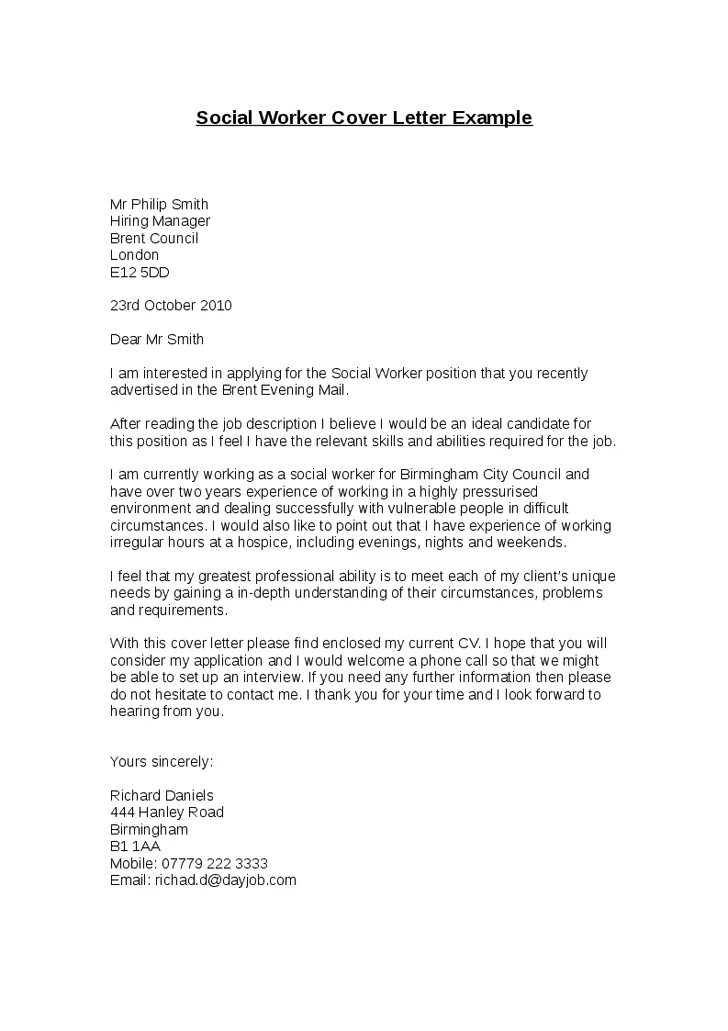
Express your genuine passion for casework and your sincere commitment to helping others. Explain why you are drawn to this field and what motivates you to be a caseworker. This can be particularly powerful if you have personal experiences or a strong desire to make a positive difference in the lives of vulnerable individuals. Mention specific aspects of casework that excite you, such as advocating for clients, providing support, or working with a specific demographic. Demonstrating your passion for the role makes you stand out and conveys that you are not just looking for a job, but building a career that you are enthusiastic about. Show your passion and enthusiasm.
Closing the Letter
In your closing paragraph, reiterate your interest in the position and summarize why you are a good fit for the role. Briefly recap your key qualifications and skills and keep the closing concise and professional. Thank the employer for their time and consideration. The closing should reinforce the positive impression you have made throughout the letter. Ensure that your closing remarks leave the employer with a clear understanding of your suitability and your enthusiasm for the role. Remind the reader about your interest in the position.
Expressing Gratitude and Offering Availability
Conclude your cover letter by expressing your gratitude for the employer’s time and consideration. Clearly state that you are eager to discuss your qualifications further in an interview. Indicate your availability for an interview and provide the best way for them to contact you. Be sure to end with a professional closing, such as “Sincerely” or “Best regards,” followed by your typed name. Offering your availability and expressing gratitude shows your professionalism and eagerness to move forward in the hiring process, creating a positive and lasting impression. Providing your availability will help you increase your chances of getting the job.
Formatting Your Cover Letter
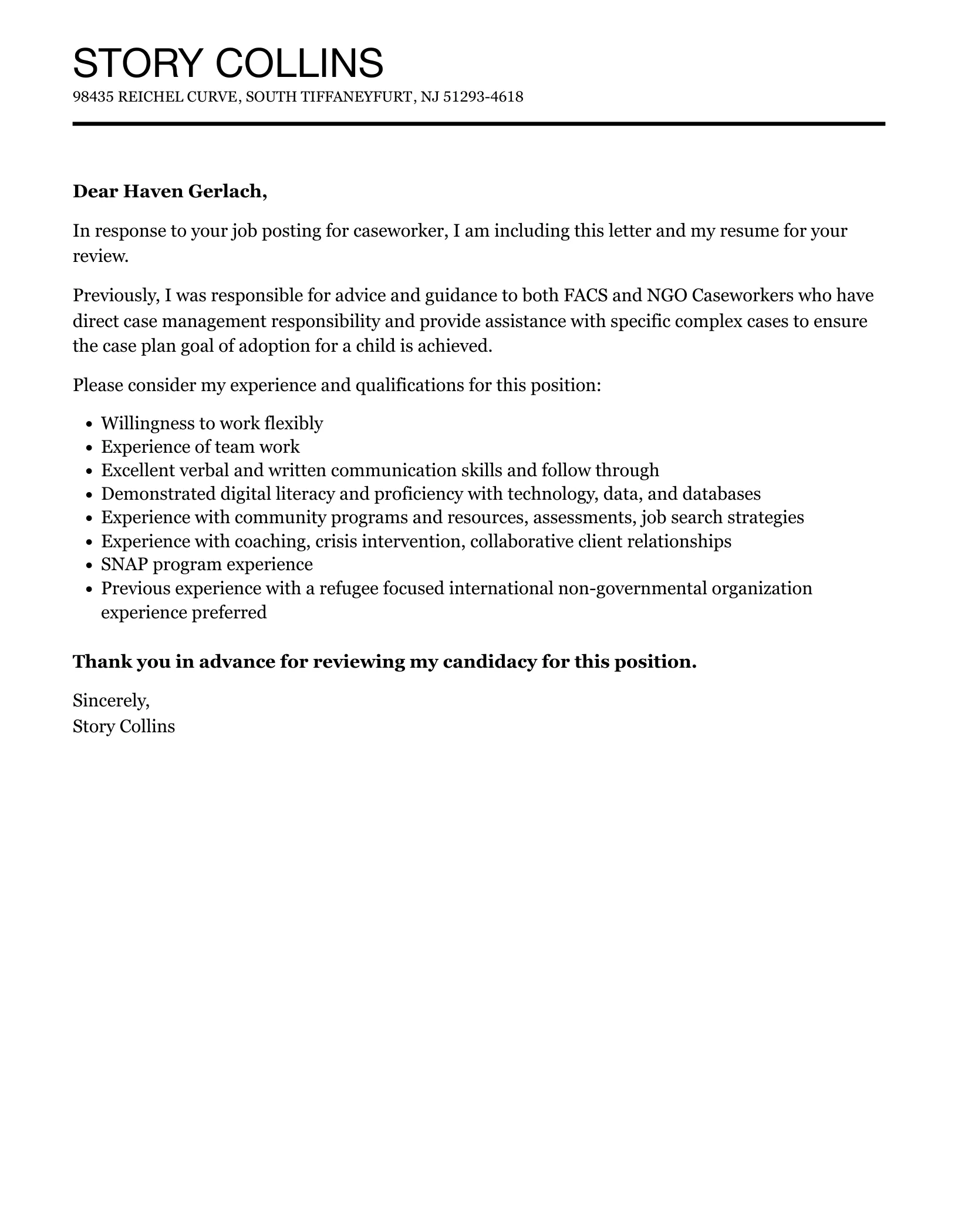
The overall appearance of your cover letter is as important as the content. A well-formatted cover letter shows professionalism and attention to detail, and it significantly impacts its readability. Proper formatting will help you communicate your message clearly and effectively. Conversely, a poorly formatted cover letter can detract from your qualifications and make it difficult for the employer to understand your message. Following a standardized format will improve your cover letter and help you make a positive lasting impression. A well-formatted letter helps you communicate.
Choosing the Right Font and Size
Choose a professional and easily readable font, such as Times New Roman, Arial, or Calibri. Keep the font size between 10 and 12 points. Make sure the font is clear and consistent throughout the entire letter. Avoid using overly stylized or decorative fonts, as they can be distracting and difficult to read. Maintaining a consistent font and size makes your cover letter look professional and is easy on the eyes, increasing readability and overall professionalism. The main goal is to ensure your cover letter is easy and enjoyable for the hiring manager to read. Make sure you choose an easy-to-read font.
Proofreading and Editing
Before submitting your cover letter, thoroughly proofread it for any errors in grammar, spelling, and punctuation. Typos and grammatical errors can undermine your credibility and create a negative impression. Use a spell checker and consider having a friend or family member review your letter. Pay close attention to sentence structure, clarity, and the overall flow of the content. Always ensure your cover letter is free of any mistakes and conveys a sense of professionalism and attention to detail. Presenting a flawless cover letter demonstrates respect for the employer and shows your willingness to put forth the necessary effort. Make sure your cover letter is error-free and professional.
Caseworker Cover Letter Examples
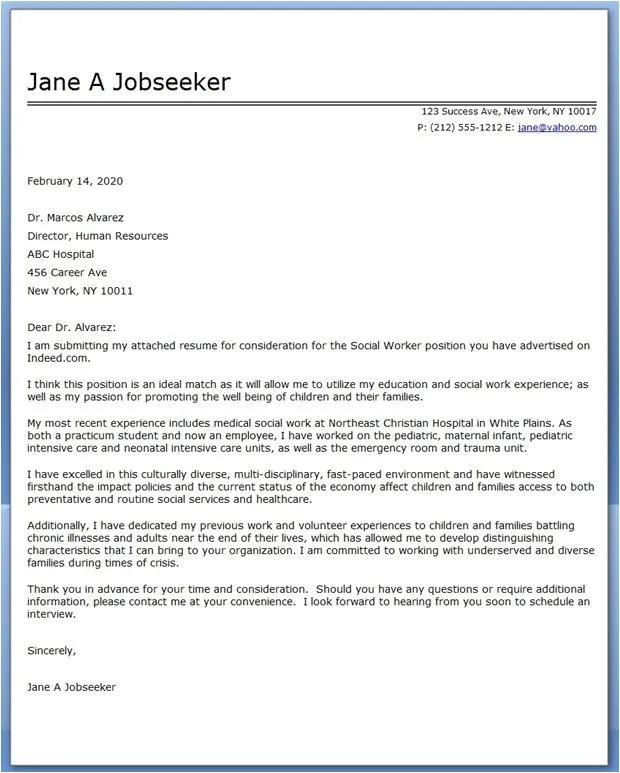
Reviewing sample caseworker cover letters can offer valuable insights into the format, structure, and content of successful cover letters. Many online resources offer examples tailored to different experience levels and specific job types. Think of these samples as helpful templates, but always remember to customize each letter to reflect your unique qualifications and the specific requirements of the job you’re applying for. Use these examples to inspire your writing and to ensure your cover letter is both persuasive and specifically tailored to the role. Learning from the success of others can help you create an impactful cover letter.
Example Cover Letter 1
This section provides a sample cover letter, demonstrating the key components we’ve discussed. The example focuses on a specific caseworker role, highlighting the appropriate skills and relevant experiences. It should be a comprehensive and easy-to-follow example, including accurate contact information, a personalized salutation, a strong opening paragraph, details about relevant skills and work experience, your accomplishments, a demonstration of passion, and a professional closing that includes your offer of gratitude and availability. Consider using the STAR method to clearly demonstrate the applicant’s qualifications effectively. This will provide practical help.
Example Cover Letter 2
This second example is another cover letter, tailored for a slightly different role or experience level to provide flexibility in different applications. The second example uses a slightly different tone and emphasizes alternative skill sets and accomplishments. The goal is to offer a versatile learning experience, showing that you can create adaptable cover letters. This helps individuals personalize their cover letters for different types of casework roles, showcasing the many examples available. A second example can give you more options.
Common Mistakes to Avoid
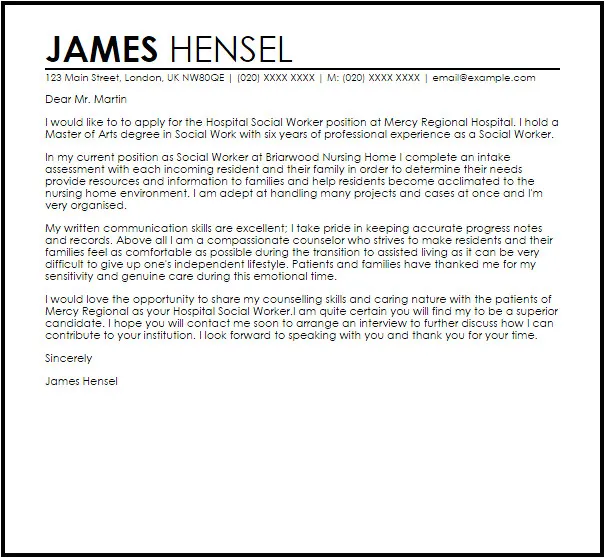
Knowing which mistakes to avoid is just as crucial as knowing what to include in your cover letter. Several common mistakes can undermine your cover letter and decrease your chances of landing an interview. Recognizing and avoiding these pitfalls will significantly help you refine your cover letter and present yourself in the best possible light. Make sure that you avoid these common errors to increase your application’s overall professionalism and effectiveness.
Generic Language and Lack of Personalization
Avoid using generic language and templates that could apply to any job application. Tailor each cover letter to the specific position and the organization. Show that you have thoroughly researched the company and understand their mission and values. Showing your knowledge and genuine interest makes the reader feel you are enthusiastic and truly interested in the role. Generic cover letters often fail to impress hiring managers and do not convey that you took the time to personalize your application. Personalize your cover letter by specifically mentioning the company’s name, the specific role, and your relevant skills to show that you have done your homework and are a good fit.
Typos and Grammatical Errors
Typos and grammatical errors are a major turn-off to employers and should be avoided at all costs. Always proofread your cover letter carefully before submitting it. Use a spell checker, but also read the letter aloud to catch any errors that a spell checker might miss. Having someone else review your letter is also a helpful idea. Errors in grammar and spelling can detract from your credibility and make you seem unprofessional and careless. Ensure that your cover letter showcases your attention to detail and professional manner.
Focusing on What You Want, Not What They Need
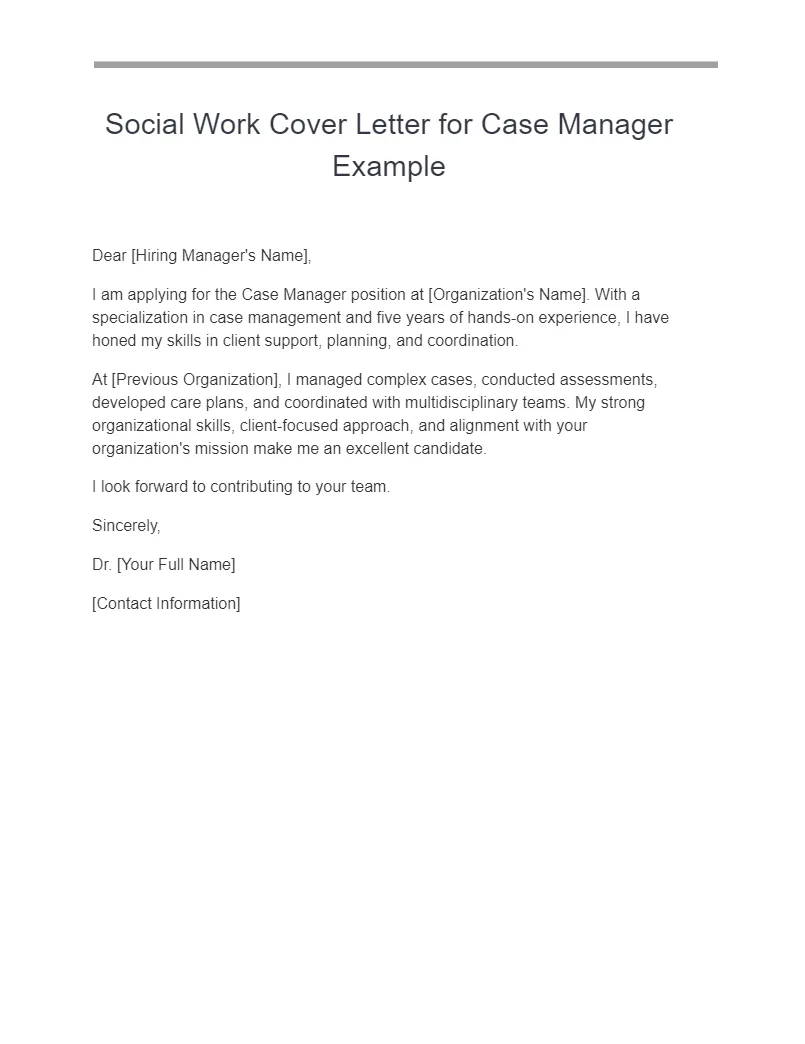
Your cover letter should focus on how you can benefit the employer, rather than what you want from the job. Highlight your skills, experience, and accomplishments that are directly relevant to the position. Explain how you can solve their problems and help meet their needs. Avoid phrases that emphasize your personal desires without linking them to the company’s objectives. A well-written cover letter shifts the focus from your needs to the value you bring to the company. Emphasize the value you bring to the table and showcase your ability to contribute to the company’s goals to make a positive impact. Show them that you can provide value.
Tips for Tailoring Your Cover Letter
Customizing your cover letter is essential for making a strong impression. A generic letter will not stand out. Taking the time to tailor your cover letter to each specific job application will significantly increase your chances of getting an interview. Tailoring your letter demonstrates that you have researched the position and that you are genuinely interested in the opportunity to work with the company. Personalizing the letter is critical.
Researching the Organization
Before you begin writing your cover letter, make sure you research the organization thoroughly. Visit their website, read about their mission and values, and gain a clear understanding of the specific services they offer. Tailor your letter to reflect your understanding of the organization’s goals. Mentioning specific programs or initiatives can demonstrate your interest and show that you have taken the time to understand the company. Showing that you understand the organization’s mission demonstrates that you are an informed and engaged candidate. Tailor your cover letter by highlighting your understanding of the organization to make sure that your goals align with the company’s mission.
Matching Skills to the Job Description
Carefully review the job description and identify the key skills and qualifications that the employer is seeking. Then, highlight your relevant skills and provide specific examples of how you have used them in the past. Use the same keywords and phrases that the employer uses in the job description to show that you are a good fit for the role. Make sure that your cover letter directly aligns with the requirements outlined in the job description to make sure you are a well-suited applicant. This direct approach ensures that you address the employer’s specific needs, immediately increasing your chances of getting an interview. Make sure your skills match the job’s demands.
Seeking Feedback
Always ask a trusted friend, family member, or career counselor to review your cover letter. They can provide valuable feedback on your writing style, clarity, and overall effectiveness. They might catch errors you missed or suggest improvements to strengthen your points. Having a fresh pair of eyes can make a significant difference in the quality and impact of your cover letter. Don’t hesitate to ask for multiple reviews to make sure you are presenting your best self to the hiring manager. Seeking feedback can refine your cover letter and increase your chances of making a positive first impression. Getting feedback is key.
